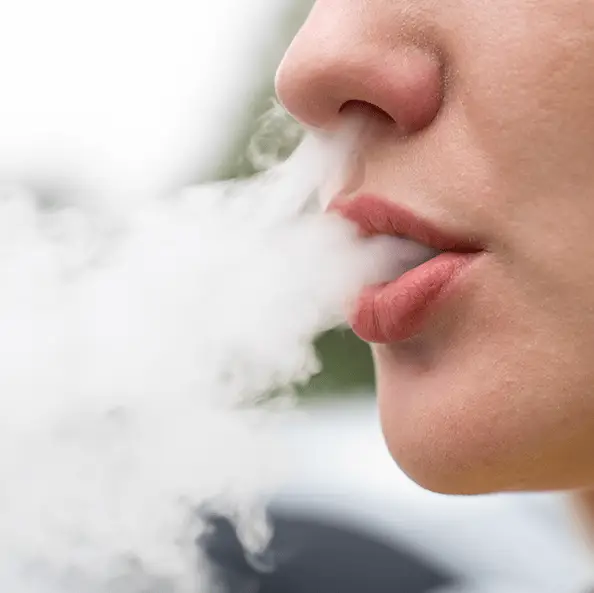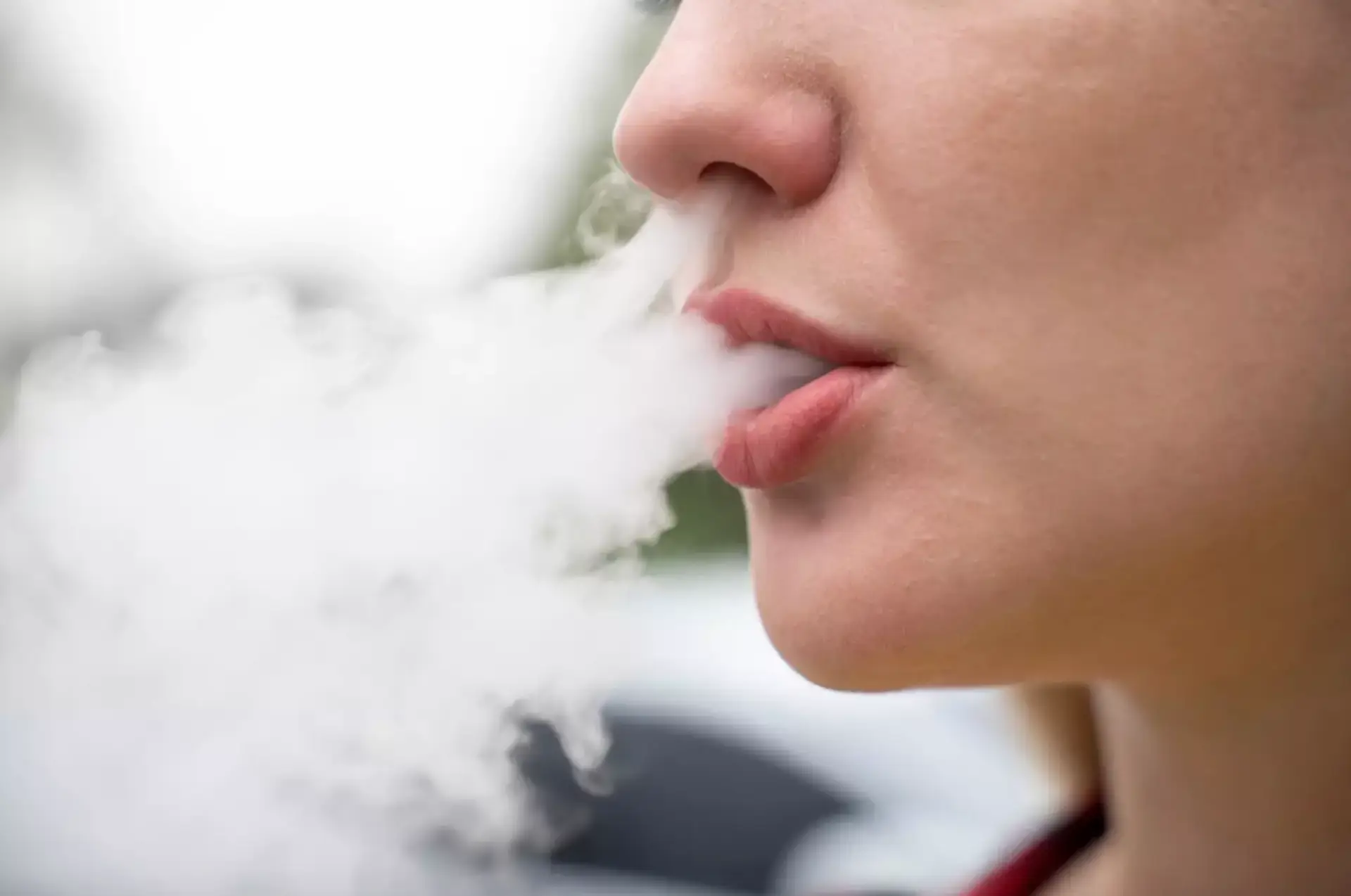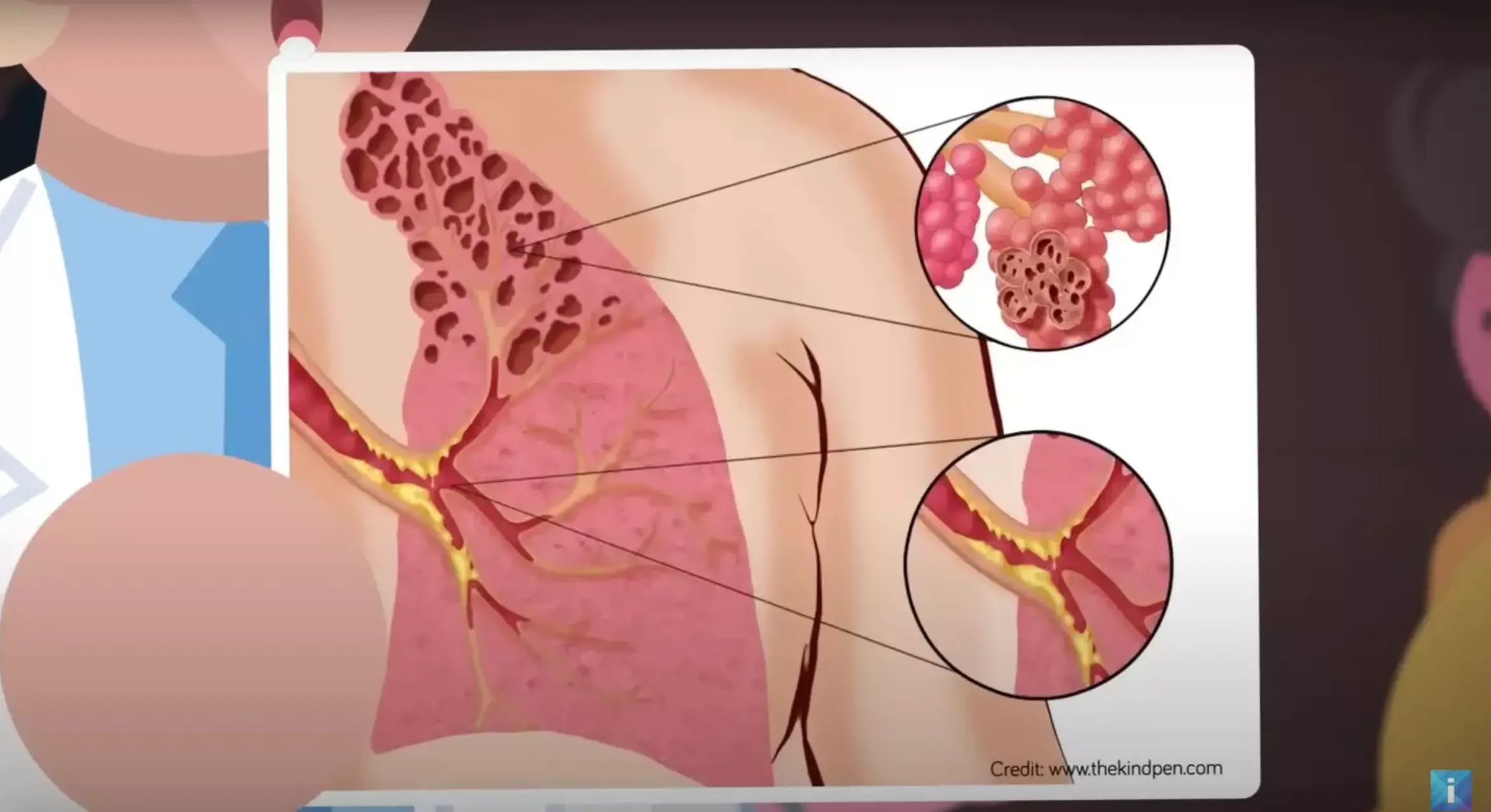
Whether in a bid to give up smoking or for a bit of fun on a night out, many of us have picked up a vape at some point.
But, while vaping was initially thought to be better for you than traditional cigarettes, there's a whole load of evidence suggesting that regularly puffing on that pineapple-flavored air could be seriously damaging to our health.
A simulation of what happens in your body when you vape has revealed just how harmful it can be.

Advert
Most vapes consist of a mouthpiece, battery, heating element and a pod that holds e-liquid - a solution containing nicotine, flavorings and other chemicals.
When the liquid is drawn out of pod as you breathe in on the mouthpiece, it is vaporized by the heating element and inhaled like cigarette smoke.
While vaping is typically considered a 'healthier' alternative to smoking, it turns out there's a lot to worry about when it comes to puffing on the chemicals inside.
In 2019, the US had an outbreak of more than 1600 cases of unexplained lung injury, with 34 people dying as a result. 92 percent of patients later admitted that they'd used black-market THC vape cartridges.
The lung condition, now known as E-Cigarette or Vaping Associated Lung Injury (EVALI), is caused in part by vitamin E acetate, a synthetic found in the e-liquid.
This is just one of several chemicals that are in vape juices.
Another common ingredient is diacetyl - an artificial flavoring found in fruity drinks that also adds the butter flavor to microwave popcorn.
A 2015 study by the Environmental Health Perspectives revealed that out of 51 tested e-liquid flavors, 39 contained the chemical.
But, while it's safe to ingest, you definitely do not want it in your lungs.
A simulation shows what happens if you regularly inhale diacetyl, and it's enough to put you off for life.

The simulation shows the build up of mucus in the lungs and damage to the alveoli, which is the primary site of gas exchange between the blood and inhaled air.
This can develop into a chronic condition known as bronchiolitis obliterans, also known as 'popcorn lung.'
It was first discovered in a popcorn factory, where workers spent so much time with diacetyl that it became toxic, causing the bronchioles in the lungs to become inflamed, damaged and even scarred.
Common symptoms of popcorn lung include coughing, wheezing and shortness of breath and the damage isn't always reversible, resulting in the need for life-long treatment.
